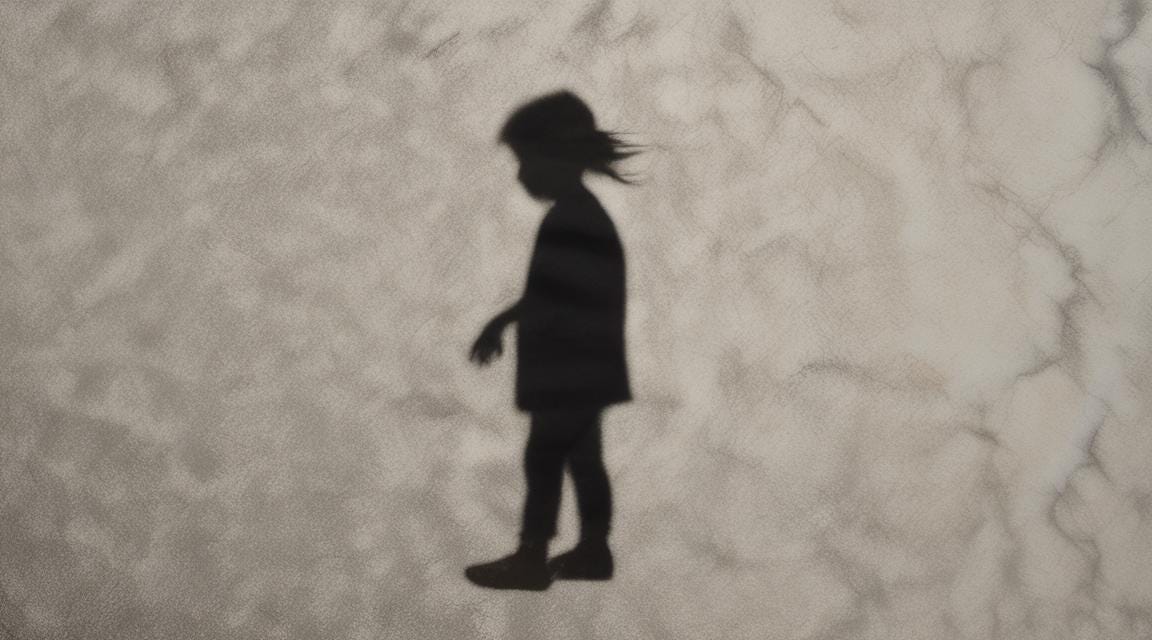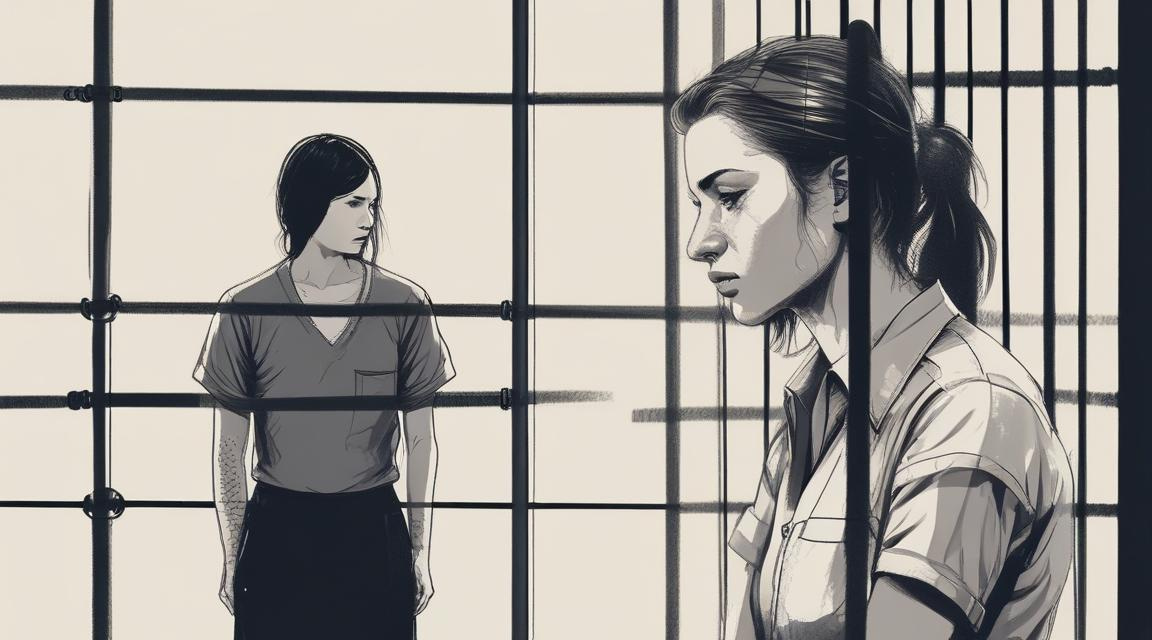Children deprived of liberty, a lack of ”care and support” in UK prisons, Africa Pretrial Detention Day, and more...
April 2024 newsletter from Women Beyond Walls - together we can build collective power and amplify voices to end the over-incarceration of women and girls worldwide.
Dear Friends
Following on from Women’s Day, we welcome another important month of activism, with a focus on child abuse marking National Child Abuse Prevention Month.
With the rise of women in prison globally, the numbers of children incarcerated with their mothers has also seen a substantial increase - the 2019 UN Global Study on Children Deprived of their Liberty estimated that there are at least 19,000 children living in prison with a parent, mostly their mothers. Children whose parents are detained or imprisoned are an invisiblised and often highly vulnerable group whose rights and welfare can be seriously affected at every stage of criminal proceedings against their parents.
For example, a review of health and human rights of children incarcerated with their mothers in sub-Saharan African prisons highlights how the “grave situation” of the children is “underpinned by the lack of basic necessities, inadequate hygiene, sanitation and safe drinking water, exposure to diseases in overcrowded cells, inadequate nutrition, lack of provision of clothing and bedding, and difficulties accessing paediatric care.”
Also underrepresented in such conversations are young people incarcerated in prisons or youth detention institutions. The UN Global Study on Children Deprived of their Liberty documents at least 410,000 children detained in remand centres and prisons every year, with an estimated 1 million children held every year in police custody.
In England, there were over 550 allegations of child abuse or neglect made against staff in youth detention centres between 2016 - 2019 (Numbers which are expected to be much higher as many incidents of this nature would go unreported out of fear and feelings of powerlessness). Carolyne Willow, Director of Article 39 – a children’s rights charity – has said that “child protection and human rights laws do not stop at the prison gate” and the danger children in prison are facing will continue “so long as we have Ministers who tolerate child incarceration and the coercive, punitive mistreatment that goes with it.”
Girls impacted by criminal justice systems are especially vulnerable. Research has shown that over 80 percent of girls in the juvenile justice system in multiple U.S. states are sexually or physically abused prior to incarceration and face multiple forms of abuse and discrimination whilst detained.
More information and resources can be found on the website for the Global Initiative on Justice with Children.
Graça Machel, Deputy Chair of The Elders and international advocate for women’s and children’s rights, states “young people are all but invisible in the justice system, facing ill treatment at the hands of those who should be protecting them.” It is important in National Child Abuse Prevention Month, and every other month, to shine a light on these overlooked incarcerated children and push for more support and protection for young people, rather than punishment.
News from around the world
Africa: April 25 was Africa Pretrial Detention Day, aimed at drawing attention to the excessive use of pretrial detention and the need for urgent reform across African criminal justice systems. In 2014, members of the Campaign, supported the African Commission on Human and Peoples’ Rights to adopt the Luanda Guidelines on the Conditions of Arrest, Police Custody and Pre-Trial Detention in Africa. Find out more in this article from the Campaign to Decriminalise Poverty.
Chile:The UN Human Rights Committee recently issued its observations on its main human rights concerns and recommendations in seven countries, including Chile. In Chile, the Committee noted the ‘disproportionate and arbitrary use of force and brutality by the police and armed forces’ and highlighted the absence of legislation guaranteeing equality between women and men. The called upon Chile to address the use of excessive force by law enforcement, and to finalise legislation to ‘explicitly guarantee equality between men and women.’
USA: The Center for Justice at Columbia University held their critical annual Beyond the Bars conference which supports movement building to end mass incarceration. Recordings of the talks and panels from the conference can be found on their YouTube channel.
USA: The Federal Correctional Institution in California, one of six women-only federal prisons in the USA, is closing after conclusions that it has been “plagued by rampant staff sexual abuse”. The closure comes after eight employees were charged with assaulting and sexually abusing women prisoners since 2021 Even after facing sexual assault and abuse in this context, residents report that they face retaliation such as being held in solitary confinement for reporting sexual misconduct, which leads advocates to suggest the extent of the violence in the institution is not fully captured by the reports. Whilst the closure of the institution is seemingly “long overdue”, the senior attorney for the California Collaborative for Immigrant Justice shared concerns amongst current residents who have experienced ongoing abuse and are now worried about their futures. A resident said: “[I wish] they would try to fix what’s going on here instead of not hearing us and taking us and putting us somewhere else … I feel like that’s re-traumatizing all of us.”
USA: On 24 April 2024, Thousands took to the streets of Washington DC for the "Free Her" march and rally for incarcerated women.
UK: The UK prison system has been criticised for its lack of support around mental health for incarcerated women. One prison, HMP Styal, has been condemned as “no place for a vulnerable young woman” following at least 11 instances of suicide since 2007. An investigation into one death by suicide of 18 year old Annelise Sanderson, explored failings into the care of Annelise and other incarcerated women. Annelise was arrested for stealing a pair of trainers and assaulting emergency workers who had intervened, and on the day of her arrest she tried to drink petrol after pouring it on herself. Instead of receiving support, Annelise instead was sentenced to 12 months imprisonment. She tragically died by suicide six months into her sentence. Media reports highlight the lack of welfare checks and, emergency protocols. A woman incarcerated at the same prison spoke about the “complete lack of care and support”, and said that “we’ve desensitised women in prison to the point where someone killing themselves is no longer a shock.” In a 2003 report on the treatment of women at Styal and other prisons, Baroness Corston said she was “dismayed to see so many women frequently sentenced for short periods of time for very minor offences” and called for a “women-centred approach focusing on therapy and rehabilitation.” Despite this critical report, inspectors’ recent reports show that mental health support in Styal is “more shocking and distressing” than before.
Italy: The Giudecca Women’s Prison has been selected as the official pavilion for the Vatican at this year’s Venice Biennale, an international cultural exhibition hosted annually in Venice and running from 20 April – 26 November. Incarcerated women in the prison are integrally involved in the exhibition – installations include art, poetry and pictures from the incarcerated women and their loved ones and a short film as a main feature inspired by and featuring the incarcerated women. Some of the women are also involved in delivering tours to journalists and visitors to the exhibition.
Belarus: The UN Committee on the Elimination of Discrimination against Women (CEDAW) published a decision after reviewing the complaint of two women detained in Belarus. It found that the constant surveillance of the two women through video cameras installed in their prison cells and under the watch of male guards was abusive treatment, violating their privacy, dignity and rights.
Opportunities
Just Detention International is offering a free coaching programme aimed at helping survivor advocates from rape crisis centres, multi-service agencies, and coalitions expand services for incarcerated survivors.
PRAWA Nigeria in partnership with the Global Justice Resource Centre, is seeking speakers for their upcoming ‘International Correctional Research and Policy Webinar’. The webinar is aiming to bring together experts, practitioners and policymakers in criminal justice reform , with proposed topics including key issues for incarcerated women and families of incarcerated people. Information on submitting an application to be a part of the webinar can be found on PRAWA’s Instagram:
Women in Prison, based in the UK, are recruiting for a Director of Finance and Resources and a Programme Facilitator.
Clean Break UK are running a Leading with Kindness workshop on 9 May 2024, drawing on decades of experience of working creativity with women who have experienced trauma.
Applications are open for Women Delivers’ Emerging Leaders for Change Program, a two-year leadership program that supports passionate young activists with the resources, platforms, connections, and training necessary to amplify and achieve their advocacy goals.
Media and literature recommendations
“This double burden of stigma and exclusion also perpetuates a cycle of marginalisation and suffering. We cannot ignore the fact that poverty is closely linked to other forms of oppression such as discrimination and gender-based violence.” - Claudia Cardona, Mujeres Libres Colombia
Read this excellent blog by Jérôme Mangelinckx, reflecting on five takeaways from the side event at the Commission on the Status of Women that we co-organised with Pathfinders and Penal Reform International on the criminalisation of women due to poverty.
Listen to the inspiring Debbie Kilroy on SBS Audio’s SEEN on why poverty is punishable and her journey to becoming a lawyer and founding Sisters Inside in Australia. To hear more about Debbie’s critical work, listen to the Women Beyond Walls podcast.
The National Women’s Justice Coalition in the UK has launched its resource library with key resources to support work with and for incarcerated women and girls https://wearenwjc.org.uk/resources/
Linda McFarlane, Director of Just Detention International, has written an article on the alarming failures for young people in youth detention facilities, with a particular focus on sexual abuse in Georgia’s youth facilities.
Watch "COMMUTED’, a new documentary following the story of Danielle Metz after her triple life sentence was commuted. The documentary reflects the “rare chance to regain the life and family that she’d been dreaming about in prison”, but the return to her home in New Orleans is not without hardship as she is forced to “confront the wounds of incarceration that linger after release from prison.” The documentary and its background can be found here.
‘Justice, USA’, a new six-part documentary series spotlighting the criminal justice system and reform in Tennessee, included an episode dedicated to incarcerated women. An article reviewing the documentary series (warning, spoilers included) specifically explores the episode centred around women’s incarceration and discusses key facts, statistics and thoughts that the documentary series misses and that they feel viewers should be aware of.
If you have any events/resources/reports you want us to consider highlighting in future newsletters, please don’t hesitate to contact us on hello@womenbeyondwalls.org.
With gratitude to the community,
The Women Beyond Walls Team





